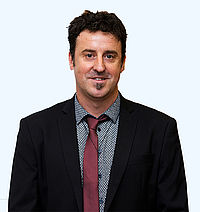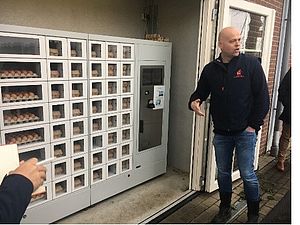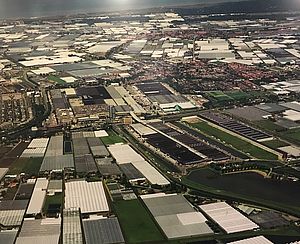Sitting here now reflecting on the week, I realise that there were a few themes emerge that have been interesting to dive deeper into, some issues have been specific to the Netherlands, but many relate to New Zealand.
By Andy Elliot, 2018 Nuffield New Zealand Scholar
It’s been a whirl wind week here in the Netherlands, I wasn’t too sure what to expect in terms of the whole experience and I honestly believe that it will take a while for it to all sink in. The first challenge was the meeting and working together with another 75 other future leaders from around the world. It was incredible, stimulating, challenging and empowering. It really pushed me and forced me to look critically at myself and my perceptions.
Sitting here now reflecting on the week, I realise that there were a few themes emerge that have been interesting to dive deeper into, some issues have been specific to the Netherlands, but many relate to New Zealand.
One of these is the obvious pressures farmers are feeling to become more demand, rather than supply driven. It’s very difficult under a backdrop of subsidy, but we met a few of small operators who are achieving this transition successfully by moving to a direct to customer, or value add proposition within their business model. These farmers are the innovators, the first movers who will always find a gap and are prepared to tread a different path. In the Netherlands, these innovators are supplying a very concentrated local market with quality products. But what about the rest of the farmers?
We learnt that the Netherlands has approximately three (3) small farmers leaving their land every day. They are walking off for several reasons; some of these include the income not being there, there are increasing legislative and regulatory layers and cost and the average farmer is becoming older without a younger generation succeeding them. For every farmer in Europe under twenty five there are seven over seventy five years. The average land price is close to €60000/H and these issues are not unfamiliar for us in NZ.
The Dutch cannot afford to continue to lower the cost of their production and rage battle over commodity prices, as like New Zealand, production costs are too high. Exports need a clear identity, a story, a differentiation from others, which will attract and appeal to the consumers purchasing choice. The other driver in loss of value would be volume, but that’s a bit more challenging to manage.
Can everyone innovate and become a supplier direct to consumer? Is everybody capable of becoming an entrepreneur? I’d suggest not, but we can all change what we do, and we can all prepare ourselves to be in a better position, when such disruption is being forced upon us.
Photo on the leftt: Egg vending machine – Tomesen Pluimveehouderij. A good example of a farmer transitioning from wholesale to direct to customer.
I think, like the Dutch we need to improve our ability to collaborate and work together. There are many ways of diversifying or differentiating. It may be through supply chain or through the way we value and treat our environment or using technology within our business.
It could be through diversifying the products we produce or even through the capture and use of data within our farms. What we do not want to do is put our whole business at risk by hoping it will fix itself.
We can strengthen our adaptability by developing collaborative models or through the investment in doing things differently; research and development, transfer of technology and most importantly regular engagement with the customer and consumer to maintain awareness of their changing needs. This will all help decrease our risk, while enabling us to be more resilient to a changing export market.
Traditional farmers in the Netherlands are currently struggling to adapt to their new environment, even though the world may see the Netherlands as the innovators and technology creators. The challenge is real and often daunting, but I believe NZ is already very well positioned to adapt faster.
Image on the right: The kilometres of glasshouses around Rotterdam and the Royal Dutch Flower Market




























